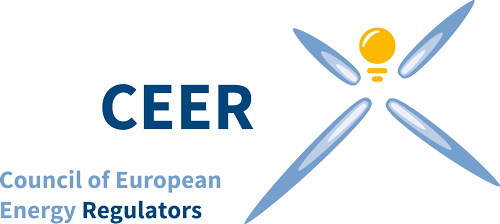April 2011
| | |
| European Energy Regulators’ News | |
| Issue: April 2011 | |
| If this e-mail is not displayed correctly, please click here! | |
| Feature Events Publications Region in the Spotlight International | Editorial ACER has launched for public consultation, two draft Framework Guidelines: one on Electricity Capacity Allocation and Congestion Management; and the other on Gas Balancing in Transmission Systems. In the spotlight are the France-UK-Ireland (FUI) and the Central West (CWE) electricity regions which have been linked through the Britned interconnector. The feature article, this month, is on CEER's proposal for the introduction of an EU-wide wholesale electricity and gas trading licence passport. |
| CEER consults on its proposal for the introduction of a Europe-wide | |
| CEER has launched for public consultation its policy advice on the introduction of a Europe-wide wholesale energy trading passport. Deadline for comments is the 17th June. At the Commission’s request, the regulators have examined whether there is a need to harmonise licencing regimes for wholesale energy trading in the EU. The CEER engaged a consultant to conduct a study which found that currently a huge variety of different rules and regimes exists in Europe; that this poses serious administrative burdens; and that several of the current licencing requirements in European countries are perceived as serious market entry barriers especially for trading companies that want to be active in several countries. CEER’s advice, which builds upon the finding of the study, examines the effects of the existing non-harmonised national licencing regimes and sets out a framework for dealing with the existing shortcomings regarding regulatory access to trading on electricity and gas wholesale markets. Implementation Options CEER concludes that a Europe-wide energy wholesale trading licence passport would be the best policy option. Benefits of the single Euro-trading licence approach CEER recommends that the energy national regulatory authority (NRA) should be the body who issues the passport and monitors legal compliance by the passport holders. The Agency for the Cooperation of Energy Regulators (ACER) could compile a comprehensive database with all trading companies active at European level. In order to ensure a level playing field, application and supervision procedures should be standardised Europe-wide. The Commission’s REMIT (Regulation on Energy Market Integrity and Transparency) proposals, tabled in December 2010, set up a framework for monitoring wholesale energy markets in order to detect market abuse and manipulation, thereby ensuring the integrity and transparency of those markets. The central element of this framework is the establishment of a market monitoring function at European level, a task which should be carried out by the Agency for the Cooperation of Energy Regulators. The REMIT proposal also seeks to grant additional investigatory and enforcement powers to NRAs. |
| CEER Events |
| Publications: •CEER draft advice on the introduction of a Europe-wide energy wholesale trading passport (Ref: C11-WMS-15-04) • FactSheet on Regulatory practices for the promotion of energy efficiency - An overview by ICER & CEER (Ref: C11-EWG-68-04) Events (see Events section of website for the new calendar of next workshops) : |
|
The standard period for ERGEG public consultation is 8 weeks. See the public consultations section of the website.
| Events |
| See all dates of Regional Initiatives meetings (RCC, IG, SG) on the ERGEG online Calendar. |
|
|
| Region in the Spotlight - FUI links to CWE through Britned interconnector |
| On 1 April 2011, Britned, the HVDC transmission link between the UK and the Netherlands was brought into operation. The 260 km long sub-sea cable is a joint venture between National Grid (the British TSO) and TenneT (the Dutch TSO) and has a transmission capacity of 1000 MW. |
| International Activities |
| Brussels was host to 136 events during Europe’s Sustainable Energy Week (11-14 April). Visit www.eusew.eu. Energy regulators took the opportunity to raise the profile of their work on smart grids and energy efficiency in particular. The International Confederation of Energy Regulators (ICER) hosted a workshop on Regulatory Practices for the Promotion of Energy Efficiency (12 April). CEER speakers also participated in a workshop organised by the European Commission (DG Energy) on the deployment of smart energies (14 April). A CEER Factsheet on Smart Grids and an ICER/CEER Factsheet on Energy Efficiency were distributed. At the ICER workshop on energy efficiency, regulators placed the spotlight on the ICER Energy Efficiency Report (June 2010), drawing important lessons from best practice in Europe and abroad. The ICER Report is a particularly useful reference point on energy efficiency practices from across the globe, allowing comparison of energy efficiency policies between EU countries (all 27 Members States are covered) and other regions (Africa, North and South America, Asia, Australia and Oceania). Distinguished speakers at the event included Philip Lowe on the European Commission’s new Energy Efficiency Action Plan, Bo Diczfalusy (IEA) who presented the work of International Energy Agency; and Richard Cowart (Regulatory Assistance Project) on lessons from the United States. View here the presentation slides, documents and photos of the ICER workshop on energy efficiency (12 April 2011). |
| About the European Energy Regulators' News |
| Reported content is given for information purposes only and does not legally bind any of the involved parties. Where third-party sources are mentioned, CEER/ERGEG is not responsible for the accuracy of the information. Your feedback on European Energy Regulators’ News is welcome, so as to improve future issues. Contact: una.shortall@ceer.eu |
